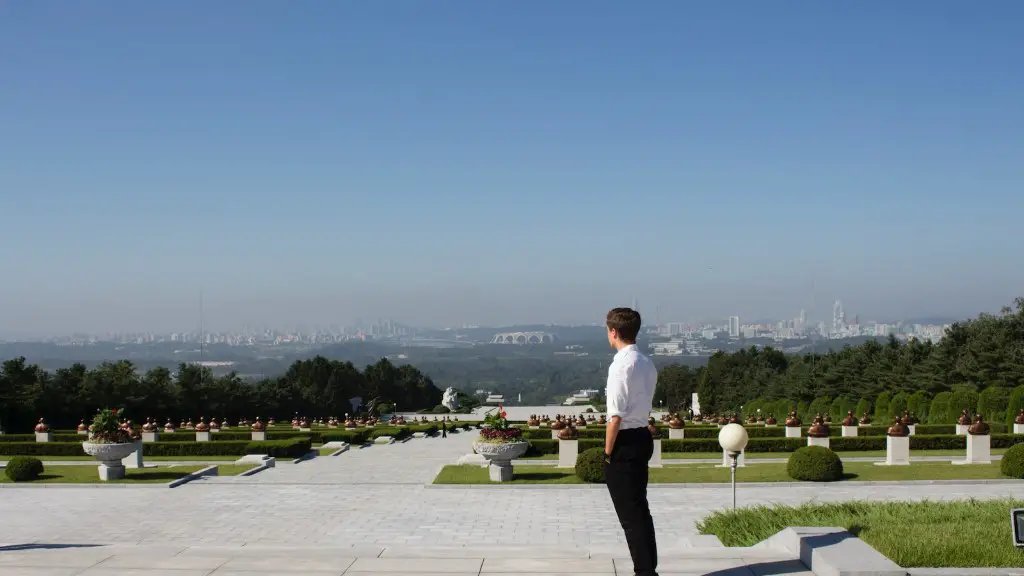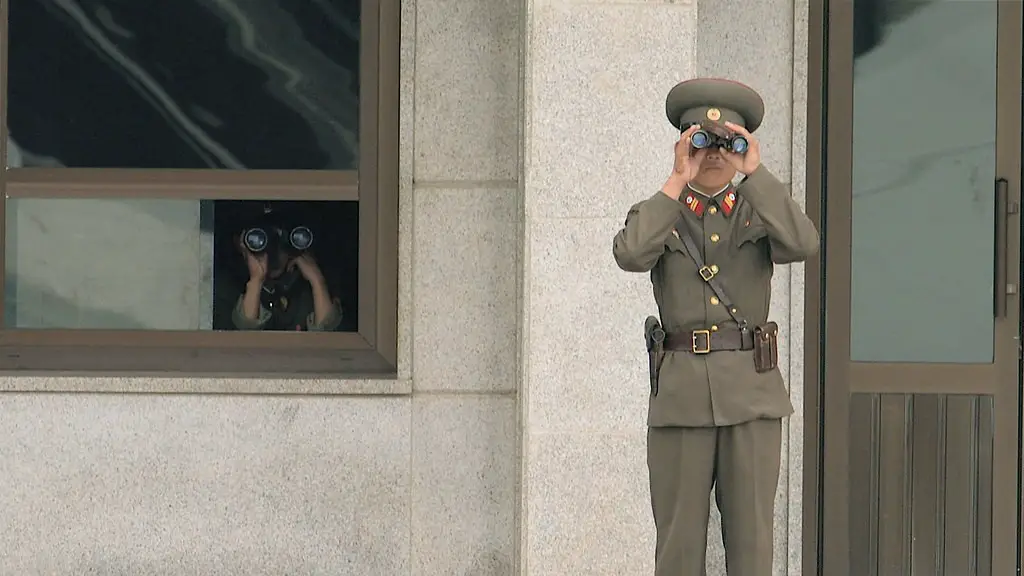Background
North Korea, or the Democratic People’s Republic of Korea, is widely considered to be one of the most secretive and repressive countries in the world. For decades, the country has been in almost complete isolation from the rest of the world, and is known for its oppressive rules and deprivation of human rights. It is also notorious for its corrupt leadership, which hoards resources and extorts money from its citizens for the benefit of its leaders. But what exactly makes North Korea so incredibly corrupt and what effect does this have on the people that live there?
Expert Perspectives
Experts point to a number of factors that contribute to the corruption in North Korea. First, the country’s isolation from the rest of the world allows its leaders to operate with impunity, with little oversight or pressure to reform. Additionally, the lack of a free press or other public watchdog means that the leadership can easily manipulate information to their own benefit, without anyone noticing.
Another major contributor to North Korea’s corruption is the country’s political system. The Korean Workers’ Party, in power since North Korea’s founding in 1948, is dedicated to maintaining centralized power, which puts immense power and resources into the hands of the leadership. This allows them to allocate resources to their own benefit, while leaving the public with little to no access to food, clean water, or basic necessities.
Finally, experts point to the years of economic sanctions, imposed by the United Nations, as a major contributor to the country’s corruption. The sanctions have blocked North Korea from receiving foreign aid and have drastically reduced its economic output, meaning the government has to rely on illegal activities, like trade of nuclear weapons and human trafficking, to make up for its economic losses.
Data
The economic situation in North Korea is dire, with the average salary for a worker in the country being just $1,500 a year. In addition, over 60% of the population lives in severe poverty, while access to basic necessities like food, clean water and healthcare is limited at best. Meanwhile, the country’s leadership is reported to spend millions of dollars on luxury items, such as cars, alcohol and jewelry.
This immense wealth disparity serves as a major contributor to North Korea’s rampant corruption. As of 2019, Transparency International ranks North Korea as one of the most corrupt countries in the world, and reports that bribery and nepotism are both common and accepted practices in the government. While individual North Koreans lack any real power to resist the leadership, the international community can work to hold them accountable and push for reforms.
Analysis
The situation in North Korea is complex and deeply rooted. On one hand, the country’s isolation has allowed its leaders to remain in power with little oversight and accountability. On the other hand, its economic woes have forced the government to rely on corruption and illegal activities to sustain itself. This is not to say that the North Korean people are unable to resist the leadership—recent protests and uprisings offer a ray of hope—but it does illustrate the depths of the country’s corruption and the immense challenges that remain for those seeking to end it.
At the same time, it is important to acknowledge that North Korea’s corruption has broader implications than just the country itself. As a rogue state, the country’s leaders have the potential to spread its corruption throughout the region, including in other countries. This is why the international community must take steps to reign in the North Korean leadership and take steps to end their misdeeds.
Exiled Tribes
The impact of North Korea’s corruption reaches beyond its borders. In refugee camps on the borders of China and Southeast Asia, thousands of North Korean refugees are living in poverty and without access to basic medical care and food. In addition, the leadership’s decision to ban certain ethnicities, including the Oh Gu, has led to the displacement of large numbers of people and put many at risk of human trafficking.
The human cost of North Korea’s corruption is incalculable. Those who have fled the country have put their lives at risk in search of a better life. Could recent protests and uprisings in North Korea be the beginning of a shift away from corruption, or will those seeking a better life find themselves stuck in the same cycle of oppression? Unfortunately, the future of these exiled tribes remains uncertain.
Propaganda
In addition to providing its leaders with resources and impunity, North Korea’s oppressive regime also utilizes propaganda to stay in power. The country’s media is heavily censored and tightly controlled by the government, making it difficult for the public to get accurate information about the country’s leaders and their actions. This allows the government to disseminate false and misleading information, which serves to cement their power and control by promoting fear and obedience from its citizens.
Ultimately, North Korea’s propaganda serves to keep its citizens in the dark, while its leaders enrich themselves and maintain their grip on power. The international community has proposed a number of potential interventions, such as humanitarian aid and sanctions to push North Korea towards reform. But without a concerted, consistent effort, the country’s leaders will continue to enjoy their impunity and its citizens will suffer under their rule.
Sanctions
Sanctions are one of the few weapons in the international community’s arsenal when it comes to combating North Korea’s corruption. Since 2006, the United Nations Security Council has passed several rounds of economic sanctions as a way to signal its disapproval of the country’s nuclear weapons tests and human rights abuses. These sanctions have been effective to some degree in curbing the regime’s activities, but have not completely halted them.
The sanctions have also had a significant impact on the country’s economy, reducing its GDP growth and leading to food shortages and increased poverty. This further serves as an indicator of the regime’s impunity and disregard for its citizens. In addition, the sanctions have weakened North Korea’s ability to trade actions and resources with other countries, creating even more vulnerability and insecurity for the embattled nation.
International Responses
In light of the bleak situation in North Korea, the international community has launched a number of initiatives to address the country’s corruption. One such effort is the United Nations’ Global Peace Program, which aims to strengthen the rule of law and prevent violent conflict in the country. The program works with local and international partners to develop strategies to end corruption and strengthen human rights.
Meanwhile, a number of NGOs, such as Human Rights Watch and Amnesty International, have been working to bring attention to the dire circumstances in North Korea and call for reform. Their work has been able to shed light on the situation and pressure both the government and the international community to take action to end the country’s corruption.
Conclusion
North Korea’s rampant corruption has had devastating effects on its citizens and underscores the need for international action to address the situation. While the country’s isolation has been a major factor in its corruption, international initiatives, such as economic sanctions, humanitarian aid and public pressure, can help push the country towards reform. By supporting these initiatives, the international community can help to end North Korea’s corruption and prevent further suffering.


